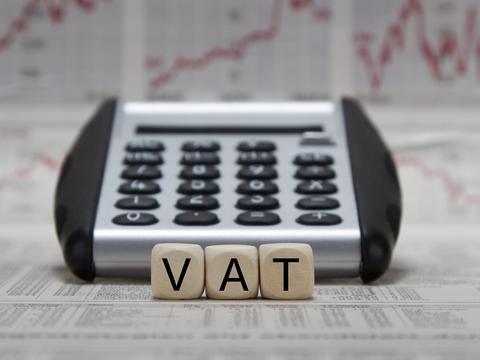What can you do about incorrect HMRC VAT advice?
Your business received a written ruling from HMRC five years ago about some of your sales being zero-rated. Another officer now claims that this advice was wrong and wants to raise an assessment to treat them as standard-rated. What can you do about this unexpected VAT bill?

Four-year assessment period
HMRC can only correct errors made on your returns for the last four years. Any errors made more than four years ago can only be adjusted if they were caused by deliberate behaviour, i.e. fraud. That is clearly not the case, so the first year of the five-year period cannot be adjusted. However, an assessment can be issued for the last four years and will also be subject to interest.
Any assessment to classify your sales as standard-rated rather than zero-rated should treat them as VAT inclusive, i.e. the assessment will be for 1/6 of the sales figures rather than 20%.
Legitimate expectation
The officer will say that HMRC must enforce the law correctly, even in situations where their own officers have given incorrect written rulings. However, this would be unfair if an officer has clearly made a mistake and misled your business into accounting for VAT incorrectly. The potential saviour is the phrase “legitimate expectation” .
The basic principle of legitimate expectation is that your business must be treated in a certain way by HMRC and the courts will protect you if you do not get that treatment. The principles of “fairness, proportionality, predictability and certainty” are quoted in HMRC’s Admin Law Manual, with the comment: “The person has a legitimate expectation that HMRC will treat him in a certain way.”
You should ask the second officer to apply discretion by using HMRC’s powers of collection and management as far as your past sales are concerned.
When can advice be binding?
Firstly, you should have given an officer the full facts and information about your supplies when you requested advice. For example, if you asked for a ruling about the VAT liability of potato sales, you would need to have confirmed how you sell them, e.g. are they served as hot or cold food; served to customers on your premises as a meal; always sold as cold food like in a supermarket, etc.
However, your main challenge is to prove that the officer’s written advice was “clear, unambiguous and without qualification” and that you have relied on this ruling throughout the period in question. You must also show how the retrospective correction of the error would be “so unfair as to constitute an abuse of power” by HMRC and that it would also cause financial damage to your business, assuming the tax involved is significant.
It will be very difficult to claim that an officer misled you with advice they gave during a phone call or other verbal discussion. The legitimate expectation opportunity only relates to situations with incorrect written advice.
What about future sales?
If the second officer agrees to write off the tax underpaid for the past four years, they will insist that you must charge 20% VAT on your future sales, i.e. the law must be properly applied. This is correct but if you disagree with their opinion - and still think your sales are zero-rated - you have the right to appeal against this decision.
Related Topics
-
MONTHLY FOCUS: SECONDARY INCOMES
In 2023 it was revealed that HMRC would enjoy new data-sharing information from online selling platforms from 1 January 2024, including eBay, Etsy, etc. This led to media speculation that innocent people selling second-hand items would soon be hearing from a tax inspector. In this monthly focus, we look at the tax consequences of starting a small trade, or taking a second job.
-
New online service for voluntary contributions goes live
If you have gaps in your NI history, you can pay voluntary contributions to increase your entitlement to certain benefits, e.g. the state pension. You can now do this online. How do you access the new service?
-
Investing in woodlands - what are your options?
Investing in woodlands comes with several tax breaks. To make the most of these should you invest personally or through a company?